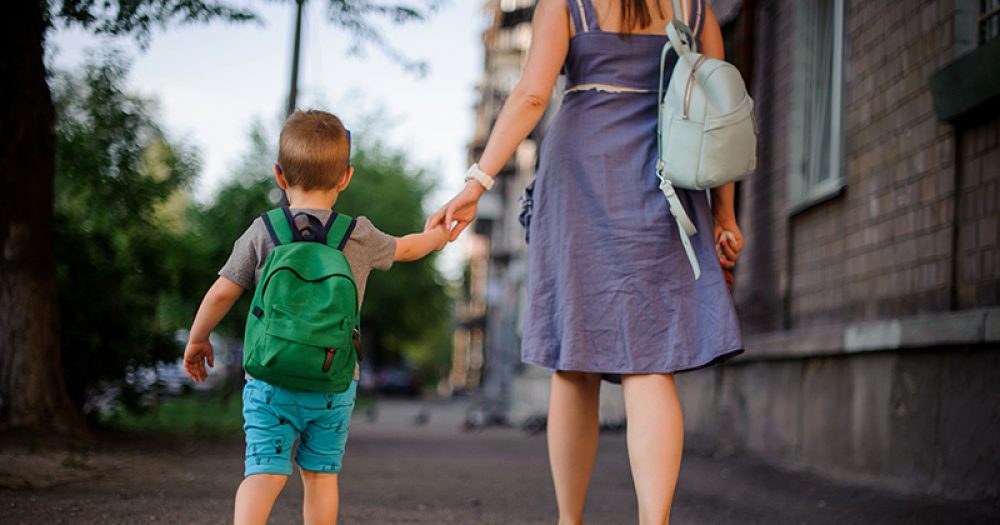Now is the time for all schools to act on the stand-out lesson from lockdown – that partnerships are central to overcoming challenges, writes Leora Cruddas
We all know the challenges of Covid-19 have been significant for educators, pupils and families. So it is really important to understand how schools have coped. A new impact report from Edurio helps us do this. Based on very extensive survey data, this report captures how schools and trusts have responded to Covid-19. With deep dives into the data on learning, well-being, community, leadership and safety, this research is an important social and educational artefact.
As our young people have completed their schooling in the face of a global pandemic, at an extraordinarily difficult moment in history, the survey shows that schools and families have worked together with a spirit of generosity and reciprocity. Teachers and parents alike have rapidly adapted and found new ways to educate and support children and young people through distance learning and home education. And those who have fared best have done so by working together.
It is heartening to see, for example, that 7 out of 10 parents surveyed gave an overall positive response to schools’ handling of Covid-19 during lockdown. This flies in the face of some media coverage, but it is important to note that parental satisfaction differs considerably across schools – the proportion of positive responses ranges from 100 per cent to under 40 per cent.
We ought to expect even better results in any future lockdowns
This potentially means that not all schools were able to satisfy parental demand, but it does not mean that any were negligent. The challenges facing some smaller stand-alone schools was considerable. A few staff illnesses could result in the best-laid plans falling over – a compelling case for all schools to be in strong, sustainable groups with single governance structures.
An important finding from the research and a crucial lesson from lockdown is that educating a child is a shared responsibility. More than 60 percent of staff reported being satisfied with the communication they had had with parents and guardians and 70 percent of parents rated their relationship with teachers and school leaders as positive. These are positive findings, but we now know more about the importance of partnership and how to leverage it, so ought to expect even better results in any future lockdowns.
Schools don’t need to do this on their own. The Education Endowment Foundation (EEF) has published a series of important guidance documents and resources to support schools in the effort. My own recommendations are six-fold:
- Be prepared. make sure your school or trust can move rapidly between classroom teaching and remote education. Your classroom and remote curriculums must be aligned.
- Create a communications plan with families and use it consistently. The EEF recommends that you audit your current communications, especially with less-involved families, to assess what works. Personalise messages as much as possible.
- Ensure your teachers know and understand the best evidence on remote education. Ensuring the elements of effective teaching are present – for example clear explanations, scaffolding and feedback – is more important than how or when they are provided.
- Create a planning framework for teachers. Learning sequences over the course of a series of sessions should involve explicit instruction, practice, retrieval and opportunities to revisit.
- Make arrangements for access to and submission of work. Ensuring clear expectations in this regard means also actively considering and planning for those without internet access. Be clear about what arrangements are in place when work is not regularly accessed and submitted, for example supportive phone calls home to include discussions about consistent learning routines and wellbeing.
- Plan support for disadvantaged and vulnerable pupils, those with SEND and English as an Additional Language. Many students will benefit from a linked teaching assistant or teacher to provide support and continue building positive relationships.
While ultimately nothing can replace the classroom, pupils can learn through remote education. It requires schools and families to work together to ensure that children and young people continue to access education, and while this has always been true, it has never been more important than amid the continued disruption of this pandemic.








The Edurio report (foreword Leora Cruddas) is a formidable piece of research. But it can’t be seen as representative. Respondents, self-selecting, were mainly from schools which were urban, advantaged (fewer than 20% FSM pupils) and academies.
That said, it’s right that educating children and young people is a collaborative process. As is often said, it takes a village to raise a child.
The full report is here: https://www.ecis.org/wp-content/uploads/2020/08/Edurio_Covid-19_Impact_review.pdf Accessing the report by this link avoids the requirement to sign up to Edurio marketing.